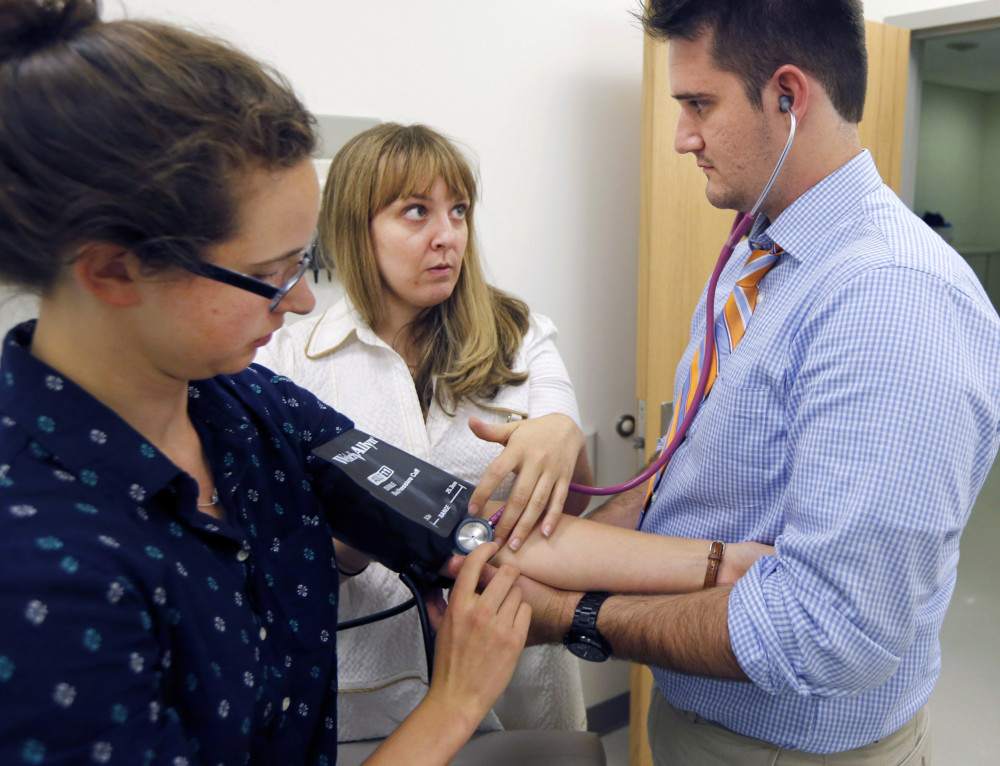By Grayson Logue
The News & Observer (Raleigh, N.C.)
WWR Article Summary (tl;dr) This article takes a look at “Medserve”, a two-year fellowship program that places recent graduates in primary-care clinics across North Carolina.
RALEIGH, N.C.
At a time when a majority of medical students are forgoing primary-care careers for specialties, Jiyun Chang is choosing a different path.
And a pioneering project in North Carolina is helping her do it.
“I think primary-care doctors have this really unique relationship with their patients, who can afford to be really vulnerable with them,” said Chang, a recent Harvard University graduate.
Unlike 88 percent of medical students, she wants to be a primary-care doctor. She is now taking part in MedServe, a new program that seeks to inspire interest in primary-care and community-based health careers for high-potential college graduates who are on track for medical school.
A two-year fellowship program, MedServe places the recent graduates in primary-care clinics across North Carolina. Chang is one of two fellows in the program to be placed in the Raleigh area, where they will be working with the homeless and in low-income communities.
Anne Steptoe and Patrick O’Shea, dual medical and MBA students, co-founded MedServe, which is in its pilot year and has 13 fellows.
Roughly half of the fellows hail from in-state schools such as Wake Forest University, UNC-Chapel Hill and East Carolina University. The others come from universities such as Harvard, Yale, Brown and Brandeis. Nearly all have significant ties to North Carolina, either growing up in the state or spending their college years here.
Late last month, the fellows completed training at UNC’s School of Medicine to give them the practical skills and knowledge to help in their clinical roles. From there, they will disperse across the state, matched with primary-care physicians and clinics that reflect their passions and interests.
Steptoe, a Brown medical student and Duke University MBA student, said fellows will be paired with “rock-star” primary-care providers.
“They’re seeing somebody who’s gotten all the way down the process, who’s heard all of those reasons not to go into primary care, who’s done it anyway, and who have been incredibly successful in doing so and are doing these amazing things in their communities,” she said.
MedServe developed from Steptoe’s frustration with traditional medical school routes.
“This checklist view of what it takes to become a doctor, going through that process and being successful in it,” Steptoe said, “it became very easy for that passion and vision to get lost in the shuffle.”
Fellows will be helping with direct care at clinics as well as working in the communities, improving health literacy and learning more about local medical systems and the problems they face.
The program offers fellows a bridge between college and medical school that allows students to explore their passions and purpose.
“If we’re anything, I hope MedServe is a place where people’s purpose can grow in medicine, and they have that inspirational experience so they see the long-term vision of what a doctor can be,” Steptoe explained.
Chang, for one, is passionate about the opportunities that MedServe offers to aid the vulnerable in underserved communities.
During her time at Harvard, she shadowed doctors in Boston but found that some lacked empathy for their patients, she said.
“I sort of got frustrated with these specialties that still do incredible work for people but wouldn’t know if I asked, ‘How do you feel when a patient can’t afford your services?'” Chang said.














































































































































































































































































































































































